Greece protests Türkiye’s inclusion of ‘Blue Homeland’ concept in education curriculum
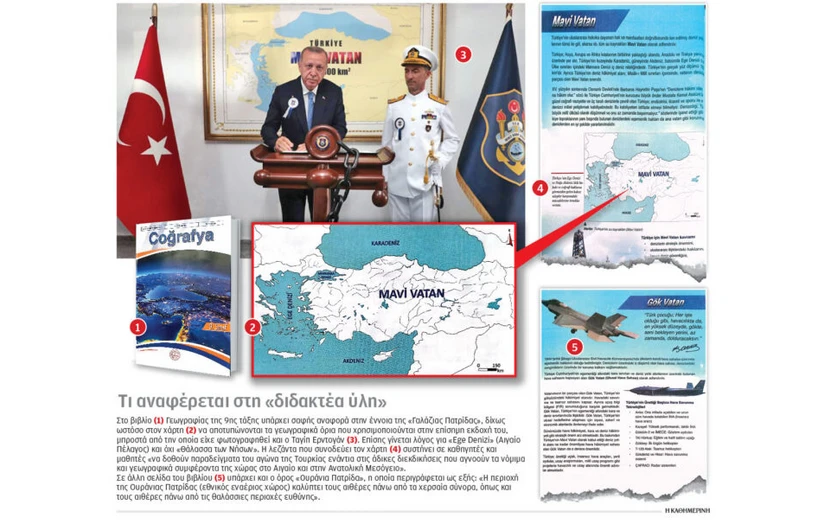 Screenshot from a well known Greek media outlet kathimerini's news story about Türkiye's Blue Homeland. (Screenshot via kathimerini)
Screenshot from a well known Greek media outlet kathimerini's news story about Türkiye's Blue Homeland. (Screenshot via kathimerini)
The inclusion of the “Blue Homeland” (Mavi Vatan) concept in Türkiye’s new education curriculum has sparked strong reactions from Greece.
Featured in the 9th-grade geography textbooks as part of Türkiye’s “Türkiye Century Education Model,” the addition has faced criticism from Athens, particularly over Türkiye’s maritime claims in the Aegean and Eastern Mediterranean.
Greek officials express concerns over new geography textbooks
Greek Foreign Minister George Gerapetritis, speaking during a parliamentary session in response to a query, voiced concern over introducing the Blue Homeland in Turkish textbooks.
“The fact that Blue Homeland will be taught in textbooks is troubling. Any maximalist ideas that could poison young minds should be avoided,” Gerapetritis said.
He also acknowledged that the absence of the term “Islands Sea” regarding the Aegean, and the exclusion of Greece and the Eastern Mediterranean from the Blue Homeland section, were positive signs, hinting that it downplayed a more direct territorial claim.
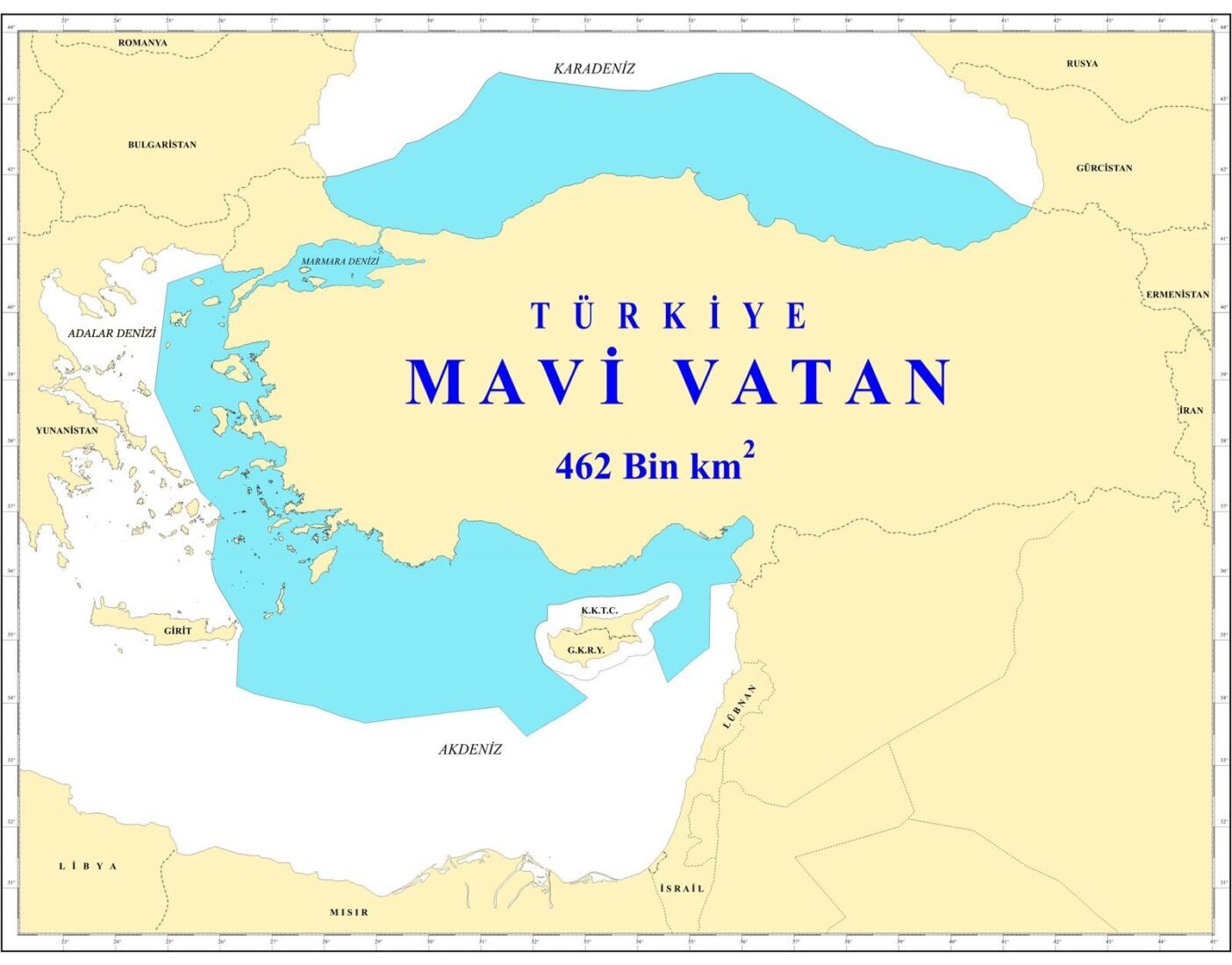
Greek media highlights ’18M Turkish students to learn Blue Homeland’
Greek media outlets have widely covered the development, focusing on the impact this curriculum change might have. The prominent Greek newspaper Kathimerini ran the headline, “18 million students to learn Blue Homeland,” highlighting that this is the first time the doctrine has been included in the Turkish school curriculum.
“Türkiye takes another step in its Blue Homeland theory. Blue Homeland is now in textbooks, which include the phrase ‘Give examples of Türkiye’s fight against unfair demands that ignore its legal and geographical rights in the Aegean and Eastern Mediterranean,'” the Greek newspaper reported.
Similarly, Greek Skai TV commented: “Previously, Blue Homeland was not present in textbooks. From now on, 18 million students will grow up learning about it.” However, the absence of maps illustrating Blue Homeland borders in the textbook was noted by both outlets as a “positive” aspect of the situation.
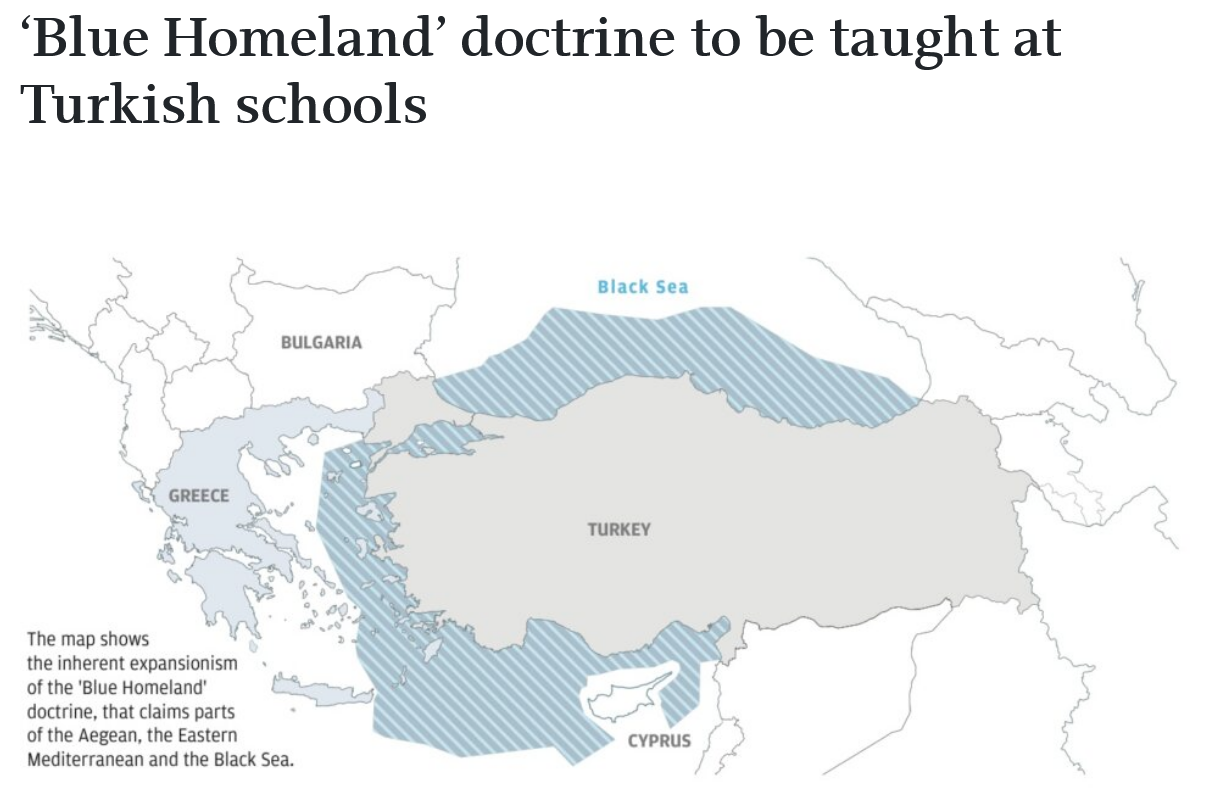
Why are Greeks concerned about it?
The term “Blue Homeland” refers to Türkiye’s asserted maritime boundaries in the Black Sea, Aegean, and Eastern Mediterranean, and has long been a point of contention between Greece and Türkiye.
The doctrine disputes Greece’s claims regarding the continental shelf and Exclusive Economic Zones (EEZ) of its islands – including critical territories like the Aegean islands.
Greek Prime Minister Kyriakos Mitsotakis, speaking at a press conference in Thessaloniki, reaffirmed his stance on the issue, stating: “The Blue Homeland remains on the table, casting doubt on Greece’s sovereignty and sovereign rights. This hinders the resolution of the continental shelf and EEZ boundaries in the Aegean and Eastern Mediterranean. I have conveyed this to President Erdogan and will continue to do so.”
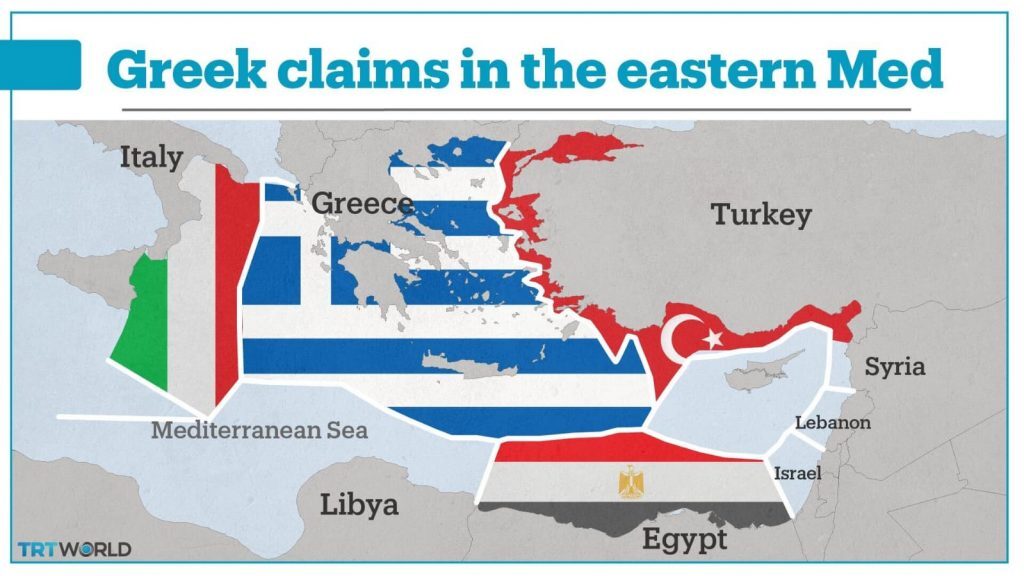
Meis island dispute
Greek Defense Minister Nikos Dendias, during a visit to the island of Meis, near the Turkish coast, reiterated Greece’s position regarding the island’s rights over the continental shelf.
“The United Nations Convention on the Law of the Sea clearly states that islands are entitled to territorial waters, continental shelves, and exclusive economic zones. There is no differing approach based on the size of the islands,” Dendias emphasized, dismissing Türkiye’s claims that the island of Meis does not hold such rights.
However, because of international treaties that were signed, Greece must not deploy military equipment to these disputed islands in the Aegean. But in recent years, Greece continued to maintain military vessels in the Eastern (Aegean) Aegean Islands with Non-Military Status in a way that violates the status.
Most recently, Greece deployed an assault boat to the non-military island of Meis in the Mediterranean. Despite all the positive and constructive efforts of Türkiye, Greece continues its provocative and lawless actions.
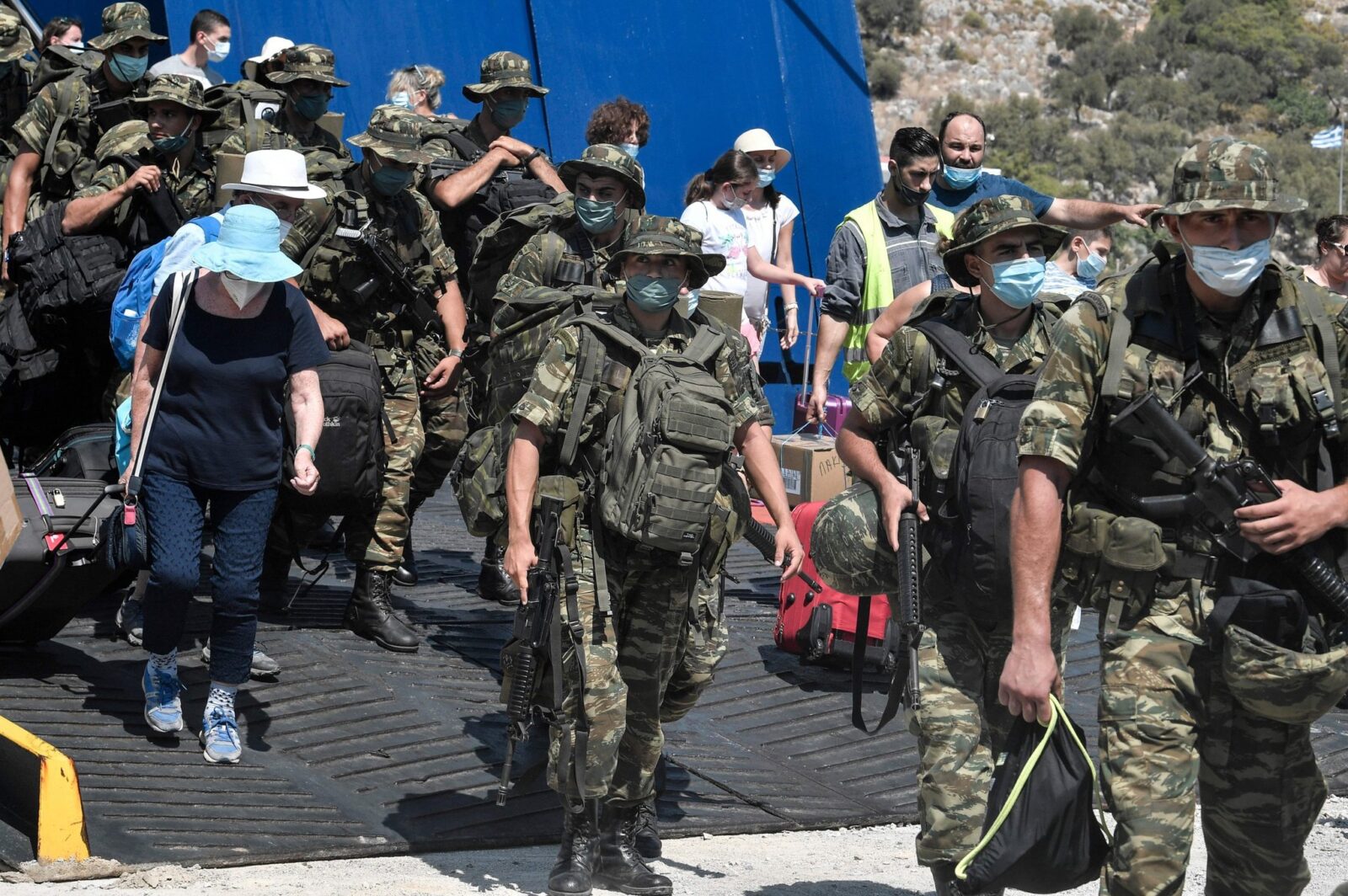
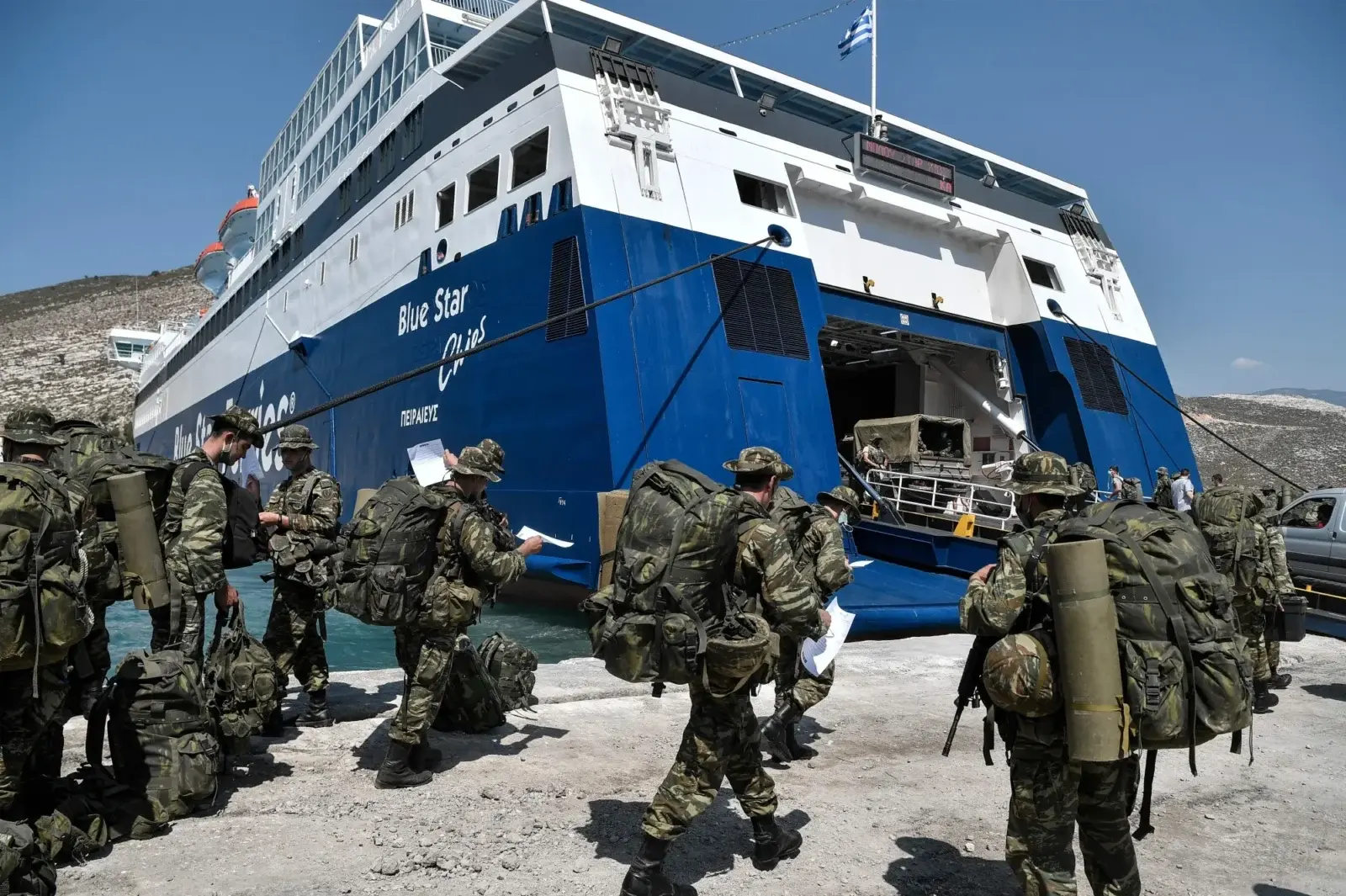
Former Minister of Defense, Hulusi Akar made a statement regarding to the issue on January 1, 2023: “Greece wants a 40,000 square kilometer (15444.0 square miles) maritime jurisdiction area for the 10 square kilometer Meis Island, they are militarizing the islands in violation of the agreements. We will not allow any fait accompli, nor will we allow this. Wrong calculations will come back from Ankara.”
At every opportunity, Ankara reminds Athens that Meis Island, located just 2 kilometers from Antalya’s Kas district, has the status of a demilitarized island according to the 1947 Paris Peace Treaty.



